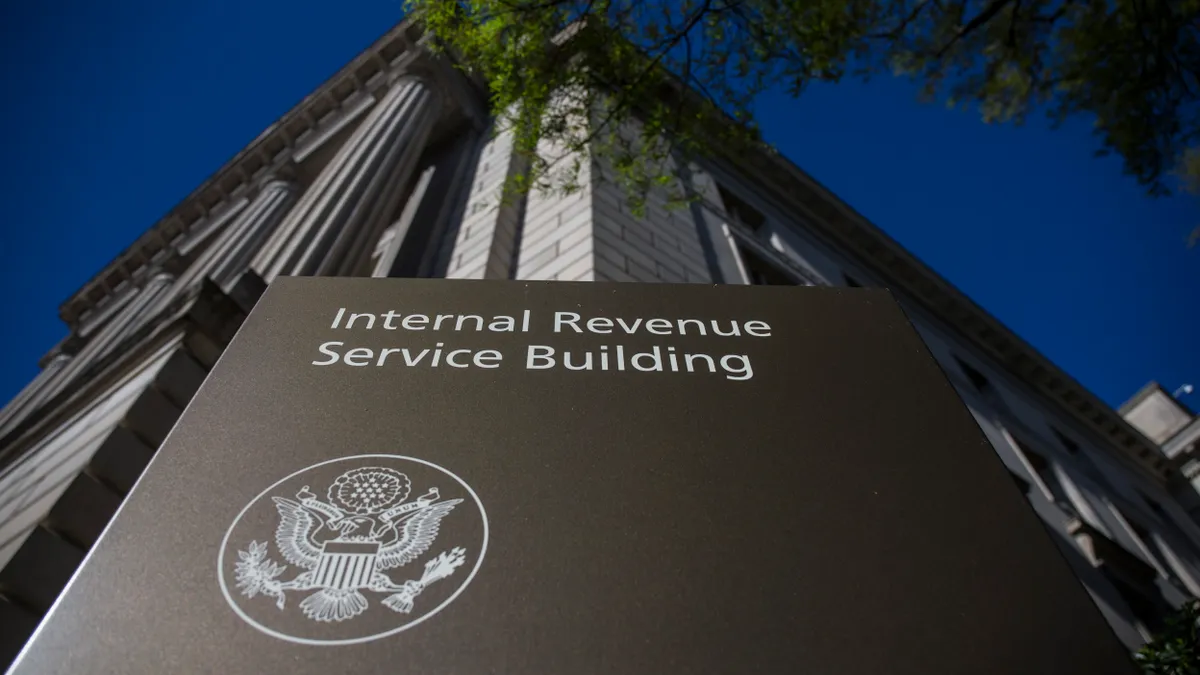Dive Brief:
- The Internal Revenue Service is rolling out a pilot program this year that’s designed to get corporations answers to thorny tax questions via so-called private-letter rulings (PLRs) in three months rather than six months or longer.
- The expedited PLR program launched in January isn’t cheap: the IRS fees for the determinations range according to the complexity of the issue addressed: from $5,000 on the use of a certain fiscal year to $38,000 on tax treaties and accounting methods and up to $181,500 on pre-filing agreements.
- While the promise of a speedier program is a bright spot during a time of IRS backlogs, it's a discrete and complicated process that isn’t an avenue that financial executives could use to make an end-run around unrelated delays, said Buck Buchanan, managing director in Grant Thornton’s tax practice. “It’s a very specific solution,” he said.
Dive Insight:
The pilot program comes as financial executives across the country are facing complexities this tax filing season stemming from delays in the operations and processing of filings at the overloaded Internal Revenue Service. At the close of the 2021 filing season, the IRS reported it still had more than 7 million business returns needing to be manually processed.
The private-letter ruling is one IRS area that appears to be throwing a lifeline to corporations. Historically, corporations use the process to obtain decisions from the IRS on a wide range of issues related to everything from corporate acquisitions, redemptions, consolidated returns, reorganizations, net operating loss carryovers and debt versus equity, according to the IRS.
In the past, “expedited handling” was only granted “in rare and unusual cases, out of fairness to other taxpayers,” according to an IRS document outlining the new fast-track process issued on January 14.
Financial executives seeking the faster lane still face a cumbersome process, said Buchanan. They must request a pre-submission conference and prepare a package making the case for their request. “It’s a massive document,” he said, typically something a corporation with a sophisticated tax department can handle but sometimes requiring an outside tax advisor.
The IRS program signals another change in that it recommends that filers submit their requests electronically. In the past the IRS has preferred paper filings, something that can be onerous for businesses. But Buchanan said the pandemic has accelerated the IRS's pivot to electronic filings. Going forward it appears that electronic submissions to the IRS will be the new norm. "What Covid did was force them to go electronic and I think the taxpayers loved it," he said.
Tactical delay
The pilot program also comes as businesses this tax season are grappling with both delays with their past returns and refunds and uncertainty around whether corporate taxes will rise in the wake of the now stalled Build Back Better legislation.
Dustin Stamper, a managing director in Grant Thornton’s tax practice, said companies might consider waiting to file their 2021 returns until September or October to see how the push for higher corporate taxes plays out. That way a company could potentially recognize more income on their 2021 return if a corporate tax rate increase were to be resurrected and made effective for 2022, he said. But they should tread carefully, he said.
“You certainly want to be very careful about any tax planning in which you pay tax sooner in anticipation of a rate increase because there are a lot of scenarios in which that rate increase doesn’t look very likely now,” Stamper said.












